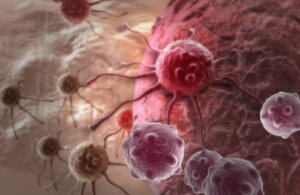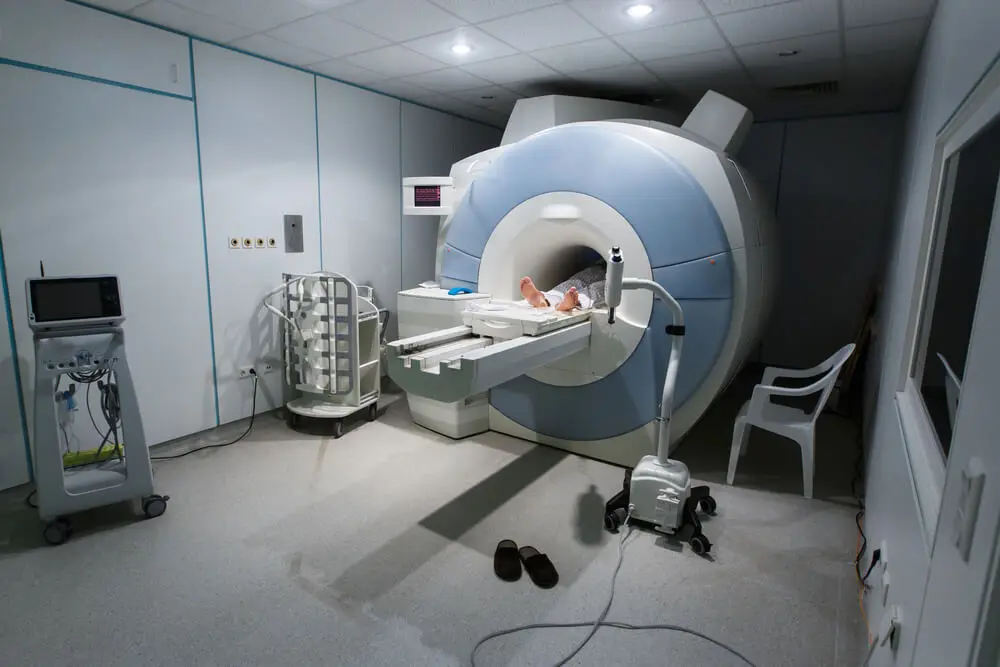Experimental Colorectal Cancer Drug Achieves Remission in all Study Patients

An experimental drug against colorectal cancer eliminated traces of cancer cells in 12 people, avoiding chemotherapy sessions, radiotherapy and surgical resection.
The participants were aware that the next step after the scientific study was the common treatments that fight the disease. But the medicine provided by the authors of the study surprised doctors with the total recovery of the patients.
The drug represents hope for the thousands of diagnoses of this pathology. We’ll reveal to you what the novel therapy is and how it’s applied.
Rectal cancer: one of the most frequently diagnosed
Rectal cancer originates in the rectum, where cells grow uncontrollably. The Spanish Society of Medical Oncology states that these malignant tumors tend to form in each of the 3 layers of this organ: muscular, serosa, and mucosa.
The pathology is associated with colon cancer, due to the similarity of its characteristics, although the difference is marked by the place where the disease starts. That’s why it’s common to call the disease colorectal cancer.
Statistics of the American Cancer Society (ACS) specify that this carcinoma is the third most frequent, both in men and women in the United States. Its projections for 2022 are 44,850 cases of rectal cancer in the country.
For its part, Spain records colorectal cancer as responsible for 15% of the incidence of all tumors, with more than 25,000 new cases per year. Moreover, in this Iberian country, it’s the second leading cause of death per year, as reported in the journal Medicina de Familia SEMERGEN.
Colorectal cancer is a public health problem. Its annual incidence is high, despite early detection methods.Dostarlimab: the promising drug in the recovery of colorectal cancer
The detection of colorectal cancer is followed by the determination of the medication options to be implemented by the healthcare team. Depending on the stage of the carcinoma, conventional measures are based on local, systemic and combined treatments, as noted by the ACS.
These actions lead to secondary conditions during the process. But the story could change with the use of dostarlimab, the active ingredient of the brand name Jemperli®. This is the experimental drug against colorectal cancer used by a group of doctors seeking to cure the condition.
It’s a humanized PD-1 monoclonal antibody, produced by recombinant DNA technology.
Each dose of dostarlimab costs $11,000 and must always be prescribed and supervised by an oncologist.
Jemperli® was initially prescribed to patients with endometrial cancer, even in relapsed phases. The women treated manifested deficiency in DNA pairing repair, according to reports from the AEMPS and the Committee for Medicinal Products for Human Use.
The shift of the immunotherapy compound to colorectal cancer came with a team of specialists who proposed to block checkpoints in patients with locally advanced diseases and deficiency in DNA repair.
Read also: Oncological Blood Tests: What Are They and When Are They Done?
What did the medical research with dostarlimab against colorectal cancer consist of?
The experts have been studying the hypothesis since 2017 and disseminated the results through The New England Journal of Medicine in June this year. They included 12 people in the sample, with stage II or III adenocarcinoma and insufficient mating error repair.
The group was given a dose of dostarlimab every 3 weeks for 6 months. The substance exposed the cancer cells to help the immune system to recognize and eliminate them.
In theory, after the trial, the sample was to continue with chemotherapy, radiotherapy and surgery. But the clinical response to the experiment spared them such procedures.
After 6 months of follow-up, the research shows that there are no traces of tumors on MRI and endoscopic examinations. There are also no signs of cancer on digital rectal examinations and biopsies, as well as on fluorodeoxyglucose scans.
The report also emphasizes that there are no cases of progression or recurrence, let alone adverse drug events reaching or exceeding grade 3. The authors conclude that locally advanced colorectal cancer was quite sensitive to PD-1 monoclonal blockade.

Learn more here: What’s the Difference Between a Cyst and a Tumor?
Side effects of dostarlimab treatment
Chemo has side effects that alter patients’ living conditions. This method causes intestinal disorders, infertility and incontinence, among other consequences.
In contrast, during the application of dostarlimab as a drug against colorectal cancer, there were no relevant clinical complications. Generally, this inhibitor causes adverse reactions in 1 out of 5 patients, but most of them are quite normal.
What is needed for dostarlimab to be considered a definitive cure?
The number of people requesting tests to detect colorectal cancer is increasing. Jemperli® fuels the expectations of patients whose only way forward was the traditional process. It’s also promising news for other types of cancer.
Although the results of the study are unprecedented, physicians outside the research are urging continued trials in larger populations to prove the drug’s efficacy and consider it a cure. For now, it’s one more step in a long road ahead.
All cited sources were thoroughly reviewed by our team to ensure their quality, reliability, currency, and validity. The bibliography of this article was considered reliable and of academic or scientific accuracy.
- Cáncer de colon y recto. Sociedad Española de Oncología Médica. España; 2020. https://seom.org/info-sobre-el-cancer/colon-recto?start=1
- Dra. Andrea Cercek,Dra. Melissa Lumish,Jenna Sinopoli, NP,Jill Weiss, BA,Jinru Shia, MD,Michelle Lamendola-Essel, DHSc.,Imane H. El Dika, MD,Dr. Neil Segal,Marina Shcherba, MD,Ryan Sugarman, MD, PhD,Dra. Zsofia Stadler,Dra. Rona Yaeger,J. Joshua Smith, MD, PhD,Benoit Rousseau, MD, Ph.D.,Dr. Guillem Argilés,Miteshkumar Patel, MS,Dr. Avni Desai,Leonard B. Saltz, MD,Dra. María Widmar,Krishna Iyer, MD, PhD,Dra. Janie Zhang,Nicole Gianino, MS,Christopher Crane, MD,Dr. Paul B. Romesser,Emmanouil P. Pappou, MD, Ph.D.,Felipe Paty, MD,Julio García-Aguilar, MD,Mithat Gonen, Ph. D.,Dr. Marc Gollub,Martín R. Weiser, MD,Kurt A. Schalper, MD, Ph.D.,y Luis A. Díaz, Jr., MD. Bloqueo de PD-1 en la reparación de desajustes: cáncer de recto localmente avanzado y deficiente. The New England Journal of Medicine. Estados Unidos; 2022. https://www.nejm.org/doi/full/10.1056/NEJMoa2201445
- Estadísticas importantes sobre el cáncer colorrectal. Sociedad Americana Contra el Cáncer. https://www.cancer.org/es/cancer/cancer-de-colon-o-recto/acerca/estadisticas-clave.html
- Ferrer Márquez M, García Torrecillas JM, Reina Duarte Á, Rubio Gil F. Investigación epidemiológica en cáncer colorrectal: perspectiva, prospectiva y retos bajo la óptica de explotación del Big-Data. Medicina de Familia SEMERGEN. Vol. 42. Núm. 8. pp. 509-513. España; 2016. https://www.elsevier.es/es-revista-medicina-familia-semergen-40-articulo-investigacion-epidemiologica-cancer-colorrectal-perspectiva-S1138359316301617
- Ficha técnica Jemperli 500 mg concentrado para solución para perfusión. Agencia Española de Medicamentos y Productos Sanitarios (AEMPS). España; 2021. https://cima.aemps.es/cima/dochtml/ft/1211538001/FT_1211538001.html
- Reunión del Comité de Medicamentos de Uso Humano (CHMP) de febrero de 2021. Agencia Española de Medicamentos y Productos Sanitarios. https://www.aemps.gob.es/informa/boletines-aemps/boletin-chmp/2021-boletin-chmp/reunion-del-comite-de-medicamentos-de-uso-humano-chmp-de-febrero-2021/#Jemperli
- Tratamiento del cáncer colorrectal. Sociedad Americana Contra el Cáncer. Estados Unidos. https://www.cancer.org/es/cancer/cancer-de-colon-o-recto/tratamiento.html
This text is provided for informational purposes only and does not replace consultation with a professional. If in doubt, consult your specialist.








